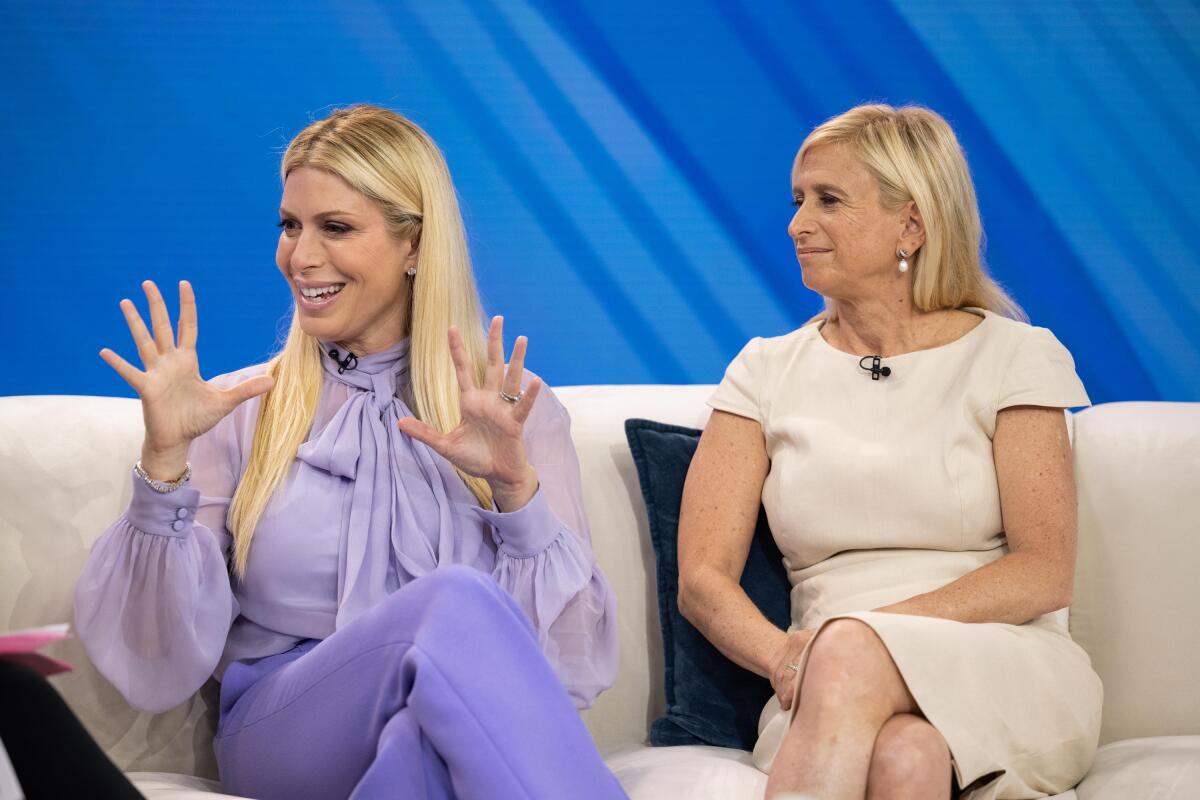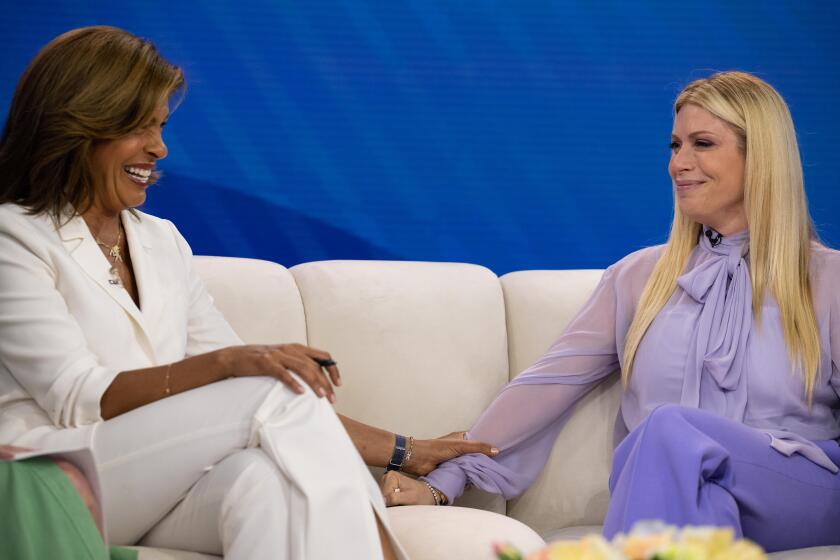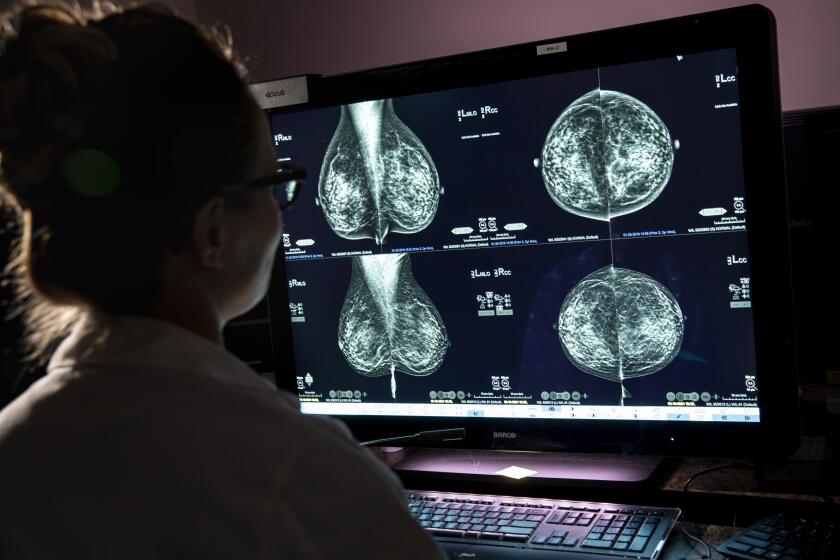Jill Martin returns to ‘Today’ and says she may undergo chemo after her double mastectomy

- Share via
“Today” contributor Jill Martin made her return to the morning show on Monday after her successful double mastectomy surgery, which she underwent to treat Stage 2 breast cancer.
Her cancer had gone undetected until BRCA gene testing prompted doctors to do more extensive scans. And although Martin is now “cancer free,” she said she will need to undergo further treatment to keep it that way.
Alongside her surgeon, Dr. Elisa Port, Martin opened up about her experiences during an interview with “Today” co-host Savannah Guthrie, as well as in a personal essay published Monday on the “Today” show website. Martin shared the success of her four-hour surgery in July but also laid out what the next steps of treatment could look like: a full hysterectomy to remove her ovaries and fallopian tubes to decrease risk of ovarian cancer, and possible chemotherapy.
‘Today’ show contributor Jill Martin revealed Monday that she has been diagnosed with breast cancer after learning that her father was a BRCA gene mutation carrier.
“That is the part that hit me the hardest — the idea of chemo,” Martin wrote in her essay, calling the experience an emotional “roller coaster.”
Throughout the TV segment and in her essay, Martin encouraged others to talk to their doctors about getting the same genetic testing that picked up on her BRCA2 gene mutation, which is known to pose a cancer risk. Her only regret was that she had not been tested sooner, before separate testing revealed she had breast cancer.
“Preventatively dealing with it is so much better than battling cancer, and I just don’t want any other family to go through this part of it,” Martin told Guthrie on Monday’s show.

Martin, who hosted the “Steals and Deals” and “Ambush Makeover” segments on “Today,” first shared her diagnosis in a separate interview and accompanying essay in mid-July. She knew she was at high risk for breast cancer, which is the most common form of cancer in the United States, because her grandmother died of the same disease.
Martin’s mother also had a double mastectomy in her late 40s before the breast cancer turned invasive. Martin said she also took measures to address her risk and was conscious of her health and regularly did mammogram testing. However, the mammograms had failed to pick up on any cancerous cells. It was only after the genetic testing had revealed her BRCA2 gene that doctors were able to recommend more extensive tests. Other screenings and imaging tests uncovered the cancer.
“Mammograms do save lives and they are still the No. 1 way to detect breast cancer. But no test is perfect and mammograms certainly aren’t,” Dr. Port had previously said on “Today.” “And they pick up about 85 to 90% of cancers, but not 100%. And that’s why we screen and recommend screening high-risk patients, adding on other imaging tests to close that gap.”
Oscar-winning actor Angelina Jolie famously revealed in 2013 that she had received a double mastectomy when she was 37 after similar genetic resting revealed she carried the BRCA1 gene. The surgery was preventative, as her breasts were without cancerous cells. Jolie’s mother, actor Marcheline Bertrand, died from ovarian cancer at age 56.
“I wanted to write this to tell other women that the decision to have a mastectomy was not easy. But it is one I am very happy that I made,” Jolie wrote after her surgery in a New York Times opinion piece, adding that the procedure had dropped her chances of getting cancer “from 87 percent to under 5 percent.”
Martin also credited the testing and surgery for saving her life. But the “Fashion for Dummies” author also was candid about the emotional toll the process has had on her and her family.
“I grew up with my mother saying, ‘You never know what’s going on with someone on the inside,’ but internally it’s very tough,” Martin told Guthrie on Monday. “I’m grateful there is a treatment plan going forward, but it’s a long road, and emotionally ... it’s earth-shattering.”
Times staff writer Nardine Saad contributed to this report.
The U.S. Preventive Services Task Force plans to recommend that breast cancer screening start at age 40 to benefit groups including Black women and women with dense breasts.
More to Read
The complete guide to home viewing
Get Screen Gab for everything about the TV shows and streaming movies everyone’s talking about.
You may occasionally receive promotional content from the Los Angeles Times.









